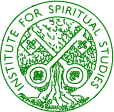
|
|
Growing into New Understanding |
Seminar delivered by Peter O'Connor on July 31, 2003Peter O'Connor is a well-known psychoanalyst; author of Beyond the Mist on Celtic spirituality, and Facing the Fifties, on the male life cycle. In July he spoke to the Institute for Spiritual Studies on the composition of, and ideas in, this latest book. The therapist cannot alter a person's past; the therapist can only alter a person's relationship with his or her past. I write from my own psyche, with a sensitivity to the movement in my soul. However, there is no guarantee as to the wisdom of my insights. I also rely on the scholarly research part of me when writing my books. In Facing the Fifties, I made 60 ninety-minute tapes of people's lives — 60 people in their fifties. I asked them to tell their stories. There were no questionnaires and no framework for these interviews. Upon listening to them, I couldn't find a common thread. After two weeks alone in a hut in Tasmania, having spent a time of solid listening to the tapes, I felt overwhelmed, and still could find no common thread. I almost gave up the project until I realized that, in some way, they all had to do with rites of passage. Rite of passage is the hero's task, which involves separation, initiation, and return. Integrity and self-acceptance is the goal of the hero's journey. (Confusing celebrity status — sports people, movie stars — with heroes is a mistake; these are not heroes.) The hero is the person willing to embrace the challenge to become a whole person. This process is furthered in our fifties. In the first stage of the fifties, there is the sense of loss. Without this there could be no change. Especially around the mid-fifties (54 he says, precisely), there can be a sense of separation from youth, of loss. The death force asserts itself, and there is an intense awareness of one's mortality. There is the change in our physical appearance: looking into the mirror we see, not our own face, but the face of our parents'. There can be the loss of work, and linked with this is the loss of identity and of feeling displaced by younger people. There can be loss of children as they grow up and move away. For women, there is the loss of the reproductive cycle and the fear of diminution of sexual desire. There is the death of our peers. There can be the urge to deny loss and to recover what's lost. The experience of loss reminds us of other losses in our lives. However, love, and falling in love, is always unique. In this time of the fifties, with its sense of separation from the material world and other things, it is as if we become unseen in the world. We can suddenly feel invisible in the world and that others do not see us. Successful mourning is achieved when we have internalized that which we feel we have lost. The urge to deny loss is dangerous because it can lead to obsessive pragmatism. Here lies unresolved grief, in the urge to do — not being able to not do. (Peter later observed that men don't have a waiting experience, e.g. being pregnant; men therefore take no action.) In the second phase of the rite of passage we enter into initiation. This is a time of detachment or separation from earlier points of reference. It is a transitional time, an uncertain state, which brings anxiety and a feeling of being betwixt and between. People will be very tempted to run away from it. The ego seeks clarity, and uncertainty can bring fear of non-being. John Keats speaks, in a famed passage, of negative capability: "I mean Negative Capability, that is, when a man is capable of being in uncertainties, mysteries, doubts, without any irritable reaching after fact and reason." (Letter to George and Thomas Keats, 21st December 1817, Hampstead.) Clinging, becoming fixed or rigid, can impair a person's transition through the process. All of these things revolve around identity, that is, "who am I?" If we stay in this state of uncertainty, we eventually come to a state where opposites can co-exist: youth and age, intimacy and isolation, ying and yang. We realize that nothing is fixed. In other words, we become initiated into the self as whole, which is opposed to the ego and its fixed immutability. We begin to understand that the subjective world of feelings is a valid reality. We recognize the ambivalence of life itself. It is an important psycholoogical task to understand that we are each other — not to project, but to reflect — to own the disconnected parts of ourselves and become whole. The self is such a more human thing to be. Appropriate outcomes for this process include awareness of other people. Others aren't extensions of ourselves. We modify our narcissism. We enhance compassion, tolerance and wisdom, and lessen the need for power. Wisdom is knowing about the sacred. It acknowledges that we are immersed in some other reality. In this regard, Peter stated that we are living in the most amorally pragmatic time in Australia. We need to move toward mentoring, particularly amongst men. He concluded with remarks about facing up to death. It would be sad to die not knowing who you are. And, death is not something you do, it is something you receive.
This site is hosted by St Peter's Eastern Hill,
Melbourne, Australia. |